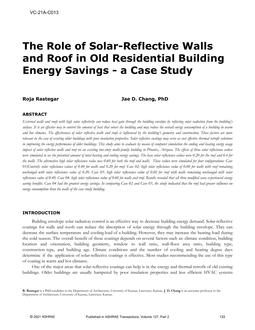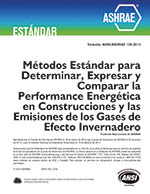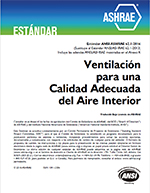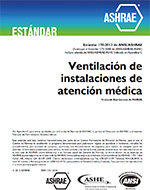Description
External walls and roofs with high solar reflectivity can reduce heat gain through the building envelope by reflecting solar radiation from the building’s surface. It is an effective way to control the amount of heat that enters the building and may reduce the overall energy consumption of a building in warm and hot climates. The effectiveness of solar reflective walls and roofs is influenced by the building’s geometry and construction. These factors are more relevant in the case of existing older buildings with poor insulation properties. Solar reflective coatings may serve as cost effective thermal retrofit solutions in improving the energy performance of older buildings. This study aims to evaluate by means of computer simulation the cooling and heating energy usage impact of solar reflective walls and roof on an existing two-story multi-family building in Phoenix, Arizona. The effects of three solar reflectance values were simulated to see the potential amount of total heating and cooling energy savings. The base solar reflectance values were 0.20 for the roof and 0.4 for the walls. The alternative high solar reflectance value was 0.60 for both the roof and walls. These values were simulated for four configurations: Case 01(Control): solar reflectance values of 0.40 for walls and 0.20 for roof. Case 02: high solar reflectance value of 0.60 for walls with roof remaining unchanged with solar reflectance value of 0.20. Case 03: high solar reflectance value of 0.60 for roof with walls remaining unchanged with solar reflectance value of 0.40. Case 04: high solar reflectance value of 0.60 for walls and roof. Results revealed that all three modified cases experienced energy saving benefits. Case 04 had the greatest energy savings. In comparing Case 02 and Case 03, the study indicated that the roof had greater influence on energy consumption than the walls of the case study building.
Citation: 2021 Virtual Conference Papers
Product Details
- Published:
- 2021
- Number of Pages:
- 8
- Units of Measure:
- Dual
- File Size:
- 1 file , 1.6 MB
- Product Code(s):
- D-VC-21A-C013
- Note:
- This product is unavailable in Belarus, Russia




